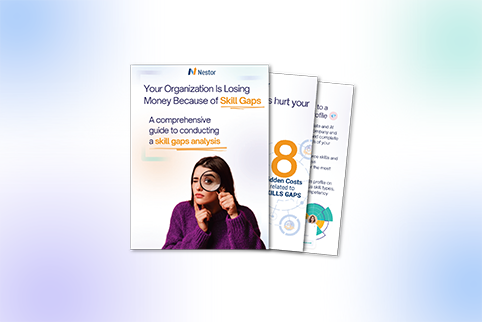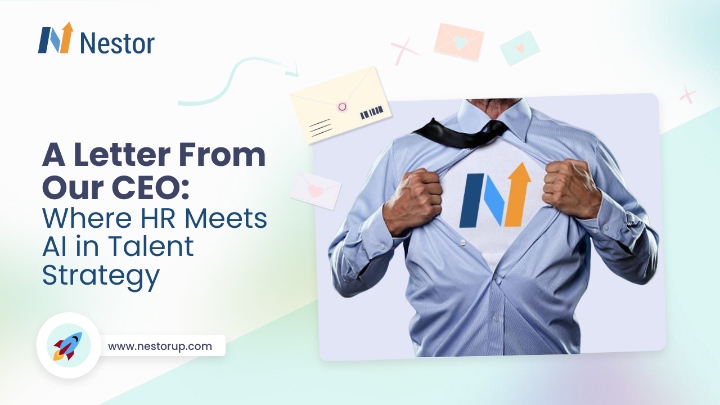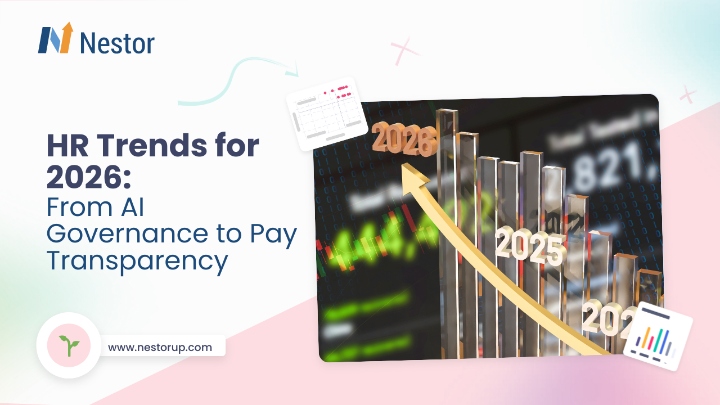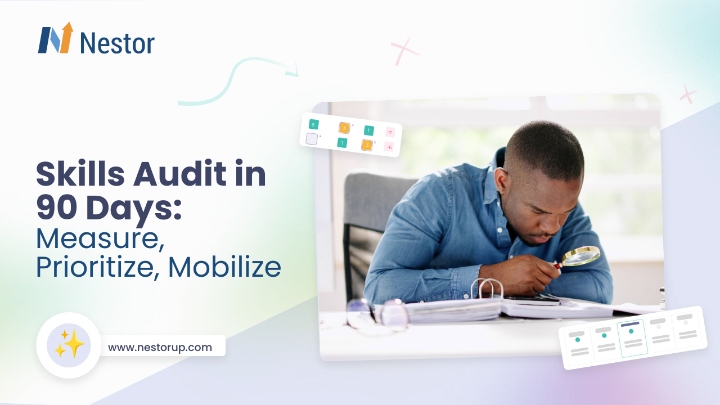HR skills have never been more important than they are today. From the aftermath of the pandemic and the uncertain economy to the tight talent market and the unpredictable future, the world of work is a big question mark and someone needs to be the answer — that’s where HR comes in.
As organizations are flirting with the idea of transitioning to skills- and capabilities-based approaches, the need to have and develop key HR skills that nurture future-ready workforces and business continuity is becoming increasingly urgent.
In this article, we look at the importance and definition of HR skills, as well as some of the most notable skill gaps and the role of organizations in bridging them. Let’s dive right in!
What are HR skills?
HR skills encompass all the abilities and competencies that empower human resources professionals to successfully build, support, and manage the workforce within their organization.
These skills play a critical role in a wide range of HR and business-related processes, from recruitment and hiring to employee growth, retention, and sustainable organizational development.
HR skills, similar to other categories, can be divided into:
- HR soft or human skills
- HR hard or technical skills
- Job-role specific skills
While most human abilities aren’t specific to the HR field, being valuable across multiple job roles or departments, technical know-how is all about mastering the HR tools that improve the efficiency and impact of HR initiatives. As for job-role specific competencies, they are a combination of skills, traits, and behaviors that enable people to manage and optimize various HR-related processes.
Why are HR skills so important?
One of the main reasons HR skills are so critical is the fact that professionals in these roles are responsible for attracting and retaining top talent, which can be especially challenging in a world where the expectations of candidates have been evolving.
And since people are often the most important resource or asset of any company, having top HR skills within your organization will ensure that your employees — the backbone of short- and long-term success — are as talented and skillful as possible and well-qualified for their roles.
Another element driving the importance of HR skills is their power to create a positive work environment, in which everyone can thrive and perform at their best.
This isn’t limited to office or remote work policies and actually includes all the other programs and efforts made by HR (sometimes in collaboration with people managers) to drive engagement, reward achievements, and create an atmosphere in which people feel safe and excited to be a part of.
HR skills are also crucial when it comes to managing change — something the pandemic has highlighted more than anything else. People in human resources played a pivotal role in helping organizations navigate through that period of uncertainty and find creative ways to support their employees and maintain performance levels.
In the aftermath of all that, we’ve learned that change management is not something that happened in the past. Instead, it has quickly become a top priority for the present and future of work, which will be redefined by technologies like AI, the blockchain, or AR/VR, which will be at the heart of the Fourth Industrial Revolution.
Of course, we’ve only touched upon some of the main reasons that make HR abilities so important, with their impact extending to many other business processes, including:
- compliance with labor laws and regulations
- employee development through upskilling, reskilling, and other L&D programs
- conflict resolution and maintaining positive employee relations
- protection of confidential business or employee information
HR soft skills
Let’s take a closer look at the most important and in-demand soft skills any HR professional should have or consider developing:
Communication
To work in HR, you need to be able to communicate clearly and effectively with people at all levels of the organization, from colleagues and employees to managers and C-level executives.
This applies to both verbal and written communication and includes the ability to present more complex HR concepts or business procedures in an easy-to-understand form.
Conflict resolution
Although undesirable, conflicts can emerge in the workplace, especially in hybrid or remote environments, where online interactions can easily be misinterpreted.
And it is the role of HR representatives to remain fair and impartial while listening to both parties, identify the root cause of the conflict, and find the most suitable solution in each case.
Stress management
Finding a way to align the needs and expectations of employees with the business plans of executives and top decision-makers isn’t only challenging but also stressful.
Still, it’s crucial for people working in (or seeking to join) this field to learn how to quickly bounce back from challenges and find creative ways to help others manage their stress levels, especially during times of uncertainty or change.
Leadership
Leadership skills are no longer expected only from people in management roles. Especially when working in HR, professionals need to showcase leadership qualities to positively influence others, inspire confidence, or take charge of situations that require HR-specific expertise or input.
And the servant leadership style is probably the best fit for the needs and expectations of modern HR departments. This model of leading is all about fully embracing a people-first approach (similar to the coaching style of leadership) and prioritizing the growth and empowerment of employees. It will not only bring improved performance but also more trust and inclusiveness inside the organization.
Empathy
Without empathy, people in HR aren’t able to effectively address the concerns of their workforce or overcome personal biases, which can influence important decisions, including hiring or promotions.
Empathy is also the superpower that helps create relations based on understanding and trust, having a direct impact on the strength and impact of work interactions either in the office or in remote environments.
HR technical skills
Now that we’ve looked at the HR human skills, it’s time to pay attention to the hard or technical capabilities:
HR software and systems
Modern HR processes are no longer managed using limited Excel sheets or tools that don’t integrate with each other.
From recruitment and onboarding to performance management and payroll, a wide range of solutions have been developed to make life easier for HR professionals, and having the skills and know-how to use them is in high demand. These HR software and systems include but aren’t limited to:
- applicant tracking systems (ATS)
- skills management software
- talent management systems (TMS)
- learning management systems (LMS)
- performance management systems
- benefits administration software
- payroll systems
Data analysis
The importance of valuable insights from internal databases is impacting all industries and departments, including HR. If the old saying was “Knowledge is power.”, it’s safe to say that nowadays “Data is power.”
While complex analytics and data processes are beyond the scope of regular HR employees, being able to interpret data and sort information to discover trends (performance progress), patterns (attrition risks), or areas for improvement is a skill that anyone working in this field should start developing or improving.
Workforce analytics and planning
This is more of a sub-skill of data literacy or analysis. It’s all about being able to use data and data-driven insights to gain a better and more objective understanding of the workforce within your organization.
For example, knowing how to use the right tool might help identify attrition risks early on, and take steps to address employee pain points or line up potential replacements.
This type of workforce or people analytics also helps identify skill gaps, which have a significant impact on business profitability and can impact innovation and competitiveness in the long run.
Data governance
Centralizing employee and business data in one place comes with many advantages, but it also creates a situation where a single hacked account or scammed employee can give access to highly confidential and valuable information.
In this context, it has become more important than ever for HR representatives to increase their awareness of (online) security best practices and learn how to use tools to protect the sensitive data they work with.
There are also data privacy laws, like the GDPR in the European Union, which companies need to follow when it comes to employee data.
AI and automation tools
While it’s still early on, generative AI and machine learning are bound to change the world of work and make various tasks (sometimes even roles) redundant.
It’s true that we’re still figuring out how to use these tools, what fair use means, and how it all fits with intellectual property rights. And this is one of the roles of HR: to decide, together with other stakeholders, how ChatGPT or Google’s Bard can be used within their organization.
At the same time, HR departments themselves need to experiment and discover how they can use these solutions. Generating better job descriptions is one example. Creating targeted interview questions based on individual CVs is another. But the use cases will only keep expanding.
Learn more about ChatGPT in HR.
Job-role specific competencies
In this section, we’re exploring some of the HR skills and competencies that are more specialized or specific to this field. They can also fit into either the soft or hard skill category, but we’re choosing to approach them separately given their importance:
Change management
As mentioned earlier, change has become (for better or for worse) a part of the modern-day work environment. And HR has the responsibility of helping both employees and businesses navigate through these rough waters.
At a business level, change management is all about understanding the vision of executives and the changing needs of the company and finding ways to re-design or adjust HR processes to make progress toward that vision and ensure business continuity. This represents a supportive element in the process referred to as ‘HR transformation’.
Organizational design
HR also plays a vital role in the process of creating, implementing, and evaluating the overall organizational design.
In this direction, HR professionals need to use the full spectrum of their skill set, since they can be involved in a wide range of activities, including:
- evaluating the current organizational structure and culture and providing feedback and insights to higher management
- proposing new organizational structures or processes that can speed up workflows or revamp outdated approaches
- communicate changes to employees, clarify concerns, and support them through the period of transition
Since organizational design involves a lot of communication and collaboration with other stakeholders, HR specialists need to learn how to present and articulate their ideas clearly, create proposals that are backed by case studies and ROI estimates, and develop increased critical and strategic thinking abilities.
Organizational culture transformation
One of the consequences of the numerous waves of uncertainty and change in the world of work is that learning and adaptation are no longer optional or nice to have. They have become essential to remain competitive and thrive, for employers and employees alike.
And while providing tailored L&D opportunities, including upskilling and reskilling programs, is a great start, HR departments can take things a step further by expanding the values, beliefs, and attitudes of the company (the aspects that make up the organizational culture) to include continuous learning, in all its forms, as a critical behavior, which is encouraged, praised, and rewarded.
Cultural awareness
The world has changed and it’s become more and more evident that businesses can thrive only when people are empowered to be themselves and make the most out of their unique skill sets.
Being aware of different cultures, backgrounds, and needs isn’t only about creating a more diverse or inclusive workplace. It’s also essential for creating a harmonious environment, which nurtures collaboration and high performance.
The need for upskilling in HR
When we talk about the skills of the future, interpersonal abilities are the ones that usually stand out. That’s because technological disruptions will make them more valuable and in demand than ever in a large number of industries.
However, when it comes to HR, the opposite seems to be true. That’s because, given its nature and demands, people in this field already have and continually develop a solid and well-rounded arsenal of soft skills. Therefore, hard skills are the ones where most gaps emerge among HR specialists. And that’s also what upskilling initiatives should focus on.
According to Personnel Today, citing data from a 2023 report by HR recruitment consultancy Macmillan Davies, the biggest gaps in HR skills are, in this order:
- people analytics and data analysis
- digital adoption
- technology skills
To be able to continue to make a strategic contribution to the business alongside offering valuable insights, it is clear it’s essential for HR skills and actions to focus on embracing technological developments, with workforce data and analytics especially critical.
— Darren Hayman, Managing Director at Macmillan Davies
And it’s not difficult to understand why these gaps emerge either. HR experts have a high number of projects and different priorities they need to juggle — and this doesn’t even include emergencies or unforeseen situations that require attention or a delicate approach to finding a solution.
Still, it’s important to make HR transformation and upskilling, particularly when it comes to hard skills, a priority. HR transformation can take many forms, including asking interns or newer employees to try out some of these new innovative tools or identify the ones that match the needs of their team.
Later on, an HR manager or director, someone with more experience and business acumen, can have a look at their findings and decide if that specific tool deserves a department-wide trial or pilot period.
The process of upskilling itself will require a more strategic and well-planned approach. While identifying the technical skill gaps is the first step, the next is creating a development strategy, choosing the skills you want to prioritize first, and selecting the best-fit opportunities for each employee. Since we’re talking about hard skills here, the most impactful efforts will include:
- online tutorials and courses
- on the job learning using these new HR systems and software
- workshops from employees or experts who are already proficient with these tools
Of course, in all of this HR needs support and encouragement from business leaders, who need to understand that hard skills gaps in HR can be costly and the benefits of preventing or bridging them are worth it. In this direction, Darren Hayman points out that:
“However, work needs to be done to support HR professionals to develop and improve their technology skills, so that businesses can take full advantage of the understandings possible from people analytics and data analysis. These can help reduce human bias, improve efficiency, increase predictive data decision-making, drive results, as well as being a tactical and strategic asset to allow more ‘people time’ for HR.”
Final thoughts
By now, it should already be clear that HR skills form the bedrock of an organization’s success, bridging the gap between management and employees, and nurturing a dynamic yet stable workplace, in which everyone can find success and professional fulfillment.
However, the evolving nature of work and the increasing emphasis on digitalization and technology have led to some notable skill gaps. The demand for advanced technical proficiency, coupled with the enduring need for soft skills like communication and stress management, highlights the ever-changing and balancing landscape HR professionals navigate.
As the HR field continues to evolve, professionals need to continuously hone their skills to meet the changing demands of the modern workplace and organizations need to step up their efforts and provide the necessary resources to support their HR teams through this entire process.











